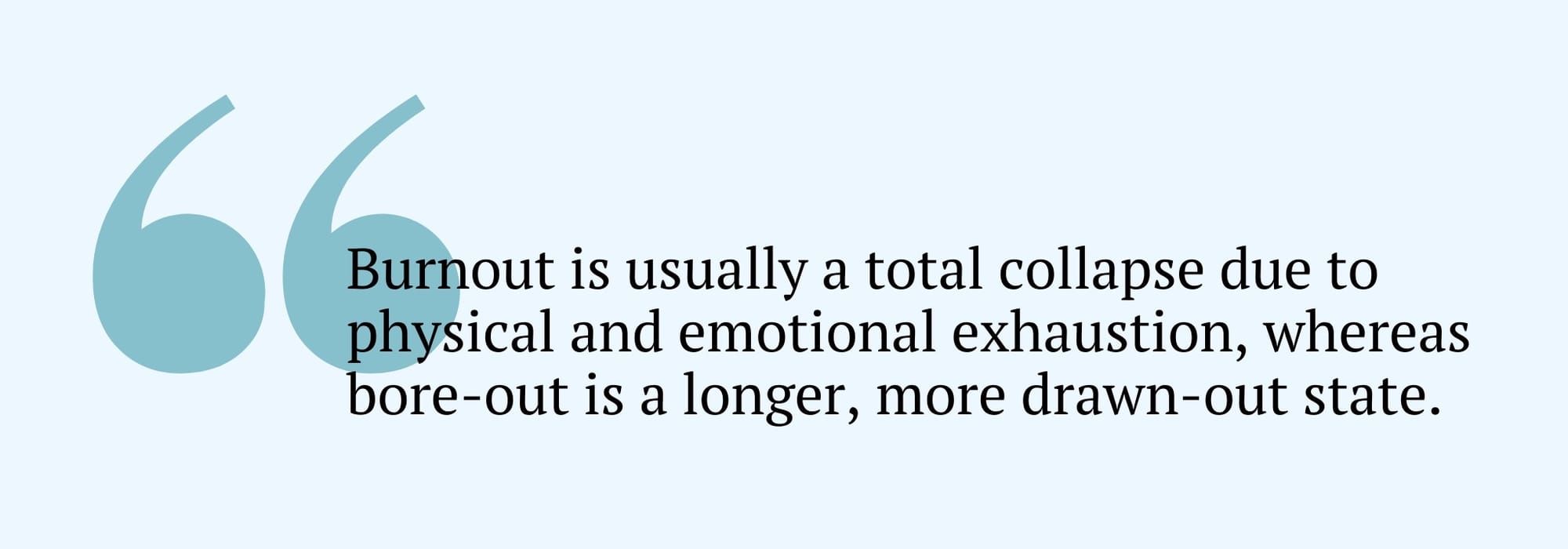Grappling with feelings of boredom? Here’s how to understand and overcome your daily slumps
Do you ever find yourself in a slump, feeling like each day is blending into the next? Whether it’s sitting in a doctor’s waiting room, pacing the house anticipating a package delivery, or scrolling aimlessly down an endless inbox, the threat of boredom in our daily lives is all too real.
Perhaps this is why, in the modern world, grappling with mundane moments encourages us to always be chasing something more exciting. But imagine a reality where we could transform this natural part of daily life into something more meaningful. Is there a way to embrace boredom rather than banish it?
Before we delve into how to side-step this unwanted feeling, we first need to understand its roots, and why we experience boredom in the first place.
Why do we feel bored?
You might think it’s difficult to become bored these days, with entertainment at our fingertips and instant distraction a tap away, but according to Dr Mandy Lehto, an executive coach and the host of podcast ‘Enough’ (mandylehto.com), people often experience boredom when they feel powerless or lacking in agency. “It’s a feeling of being resigned to a situation that isn’t fulfilling or challenging you,” she explains. “As a result, energy levels drop, you feel depleted, unstimulated, and lacking in motivation.” Dr Emma Hepburn (@thepsychologymum) adds: “Boredom is a feeling that leads us to change our behaviour. Our attention favours novelty, so we can become bored if we have to focus on a task for too long, particularly if the task doesn’t interest us. Predictive and repetitive tasks are more likely to make us lose our interest, become distracted and bored.”
But it’s not just when we’re trying to focus that we might experience feelings of restlessness. “We may also feel bored if we have nothing to do, or cannot think of something that interests us,” Dr Hepburn continues. “Boredom can be a sign that we need to take a break, or switch something up in our routine or life.”

Is boredom bad for our wellbeing?
When we’re in a bored frame of mind, we’re unlikely to actively seek out solutions to transform those feelings into something more positive and, according to Dr Lehto, we can often get into a negative spiral of thoughts.
We become tired and unfocused, and often avoid engaging with people and projects as a result,” Dr Lehto says. “This type of apathy can lead to poor performance at work, a tendency to neglect our own self-care, and not wholeheartedly commit to our relationships. If you’re feeling bored, there’s a high chance you’ll distract yourself with easy dopamine hits from social media scrolling, gaming, overindulging in food and alcohol, or online shopping – none of which are helpful if they’re being used to numb uncomfortable feelings.”
These feelings might be akin to those of burnout, but Dr Lehto suggests that we could have ‘bore-out’ instead. “Burnout is usually a total collapse due to physical and emotional exhaustion, whereas bore-out is a longer, more drawn-out state,” she tells us. “It’s a feeling of ‘meh’, of having checked out from life, or work. It’s a state of apathy and fatigue, but it’s underpinned by frustration and restlessness.”
How can we combat boredom?
Before we set out on a quest to discover the secret weapon against boredom, Dr Hepburn asks us to question whether we need to fight these feelings, or if we need to embrace what they are telling us?
“If we’re feeling bored when completing a task, do we need to take a break and do something different before we come back to the job?” she says. “If we are feeling frustrated with aspects of our life, do we need to shift things, try something new, or change our routine?”
If your spark has gone, and every day is beginning to feel like Groundhog Day, Dr Lehto claims the solution is to explore meaning and purpose. “Get clear on what your values and passions are now, and start to experiment with small changes so that your daily life aligns more with who you really are,” Dr Lehto shares. “Then pay attention to what happens to your energy and motivation levels. As organisational psychologist Adam Grant says: ‘Attaching to purpose elevates your energy.’”
Recent research, published in Motivation and Emotion in 2023, sheds light on the powerful connection between boredom and gratitude, suggesting that showing thankfulness helps to enhance a feeling that life is meaningful. So, could simply saying ‘thank you’ help shift our perspective? Dr Hepburn thinks perhaps it might: “Gratitude can help move our attention to different aspects of the task or environment, so it engages our interest more. This may be particularly beneficial if we are doing things that are necessary in our lives, such as housework or looking after children.”
She suggests shifting your focus from ‘I have to’ to ‘I get to’, so you can tap into what you appreciate about your life, and think about why it is meaningful to you. But Dr Lehto isn’t convinced that this is the only solution. “Many people think that gratitude is the answer to boredom, and while this might help, self-inquiry is likely to be a better long-term solution.”
Dr Mandy Lehto shares her first steps in self-inquiry:
1) What am I tolerating?
2) What or whom have I outgrown?
3) What do I want to feel that I haven’t felt for a long time?
Dr Hepburn agrees, and suggests that if we are feeling bored with aspects of our lives, then it can be helpful to think about our values. “If you are feeling bored with a goal you are working towards, try to think if you can change what you are doing a bit, for example changing your walking location or how you exercise,” Dr Hepburn says. “If you are feeling frustrated with a task, can you take a break or set yourself small goals to work towards? Alternatively, piggy-backing something we enjoy doing onto a boring task can help get us through it, such as listening to music or a podcast.”


Comments